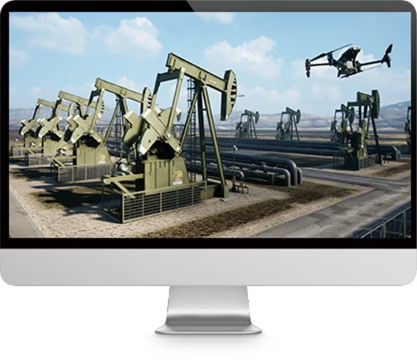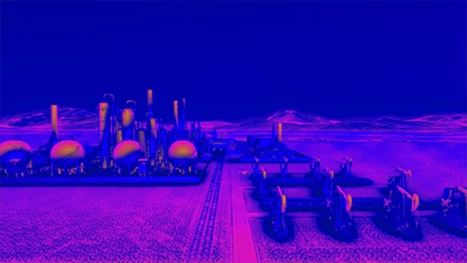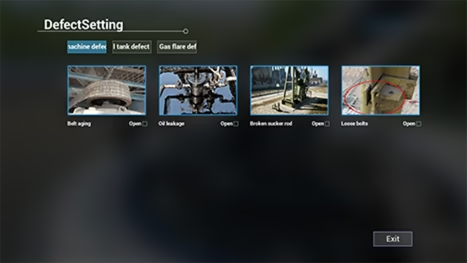
Introduction
The SRIZFLY UAV simulator is used for UAV oil and gas inspection training and provides a comprehensive and realistic training environment. The simulator uses advanced technology to accurately replicate the performance and control of the UAV under various conditions. In addition, the system can also support training mode and assessment mode; the training mode supports step list display, UAV crash reset prompt, training mission settlement, etc. This virtual platform provides a valuable tool for mastering UAV operations, which can improve efficiency and safety in actual applications.
Equipment Introduction
Pumping unit
Pumping unit inspection supports detection of imaging distance, focal length, and camera angle, and prompts correct camera specifications; supports detailed display of no less than 8 types of equipment including valves, oil ports, sucker rods, floating beams, brackets, balance blocks, motors, belts, etc.
Pumping unit overview
Pumping unit number plate
Pumping unit valve
Pump oil port
Sucker rod
Traveling beam
Bracket
Balance weight
Oil tank
Supports training mode and assessment mode; the training mode supports step list display, drone crash reset prompt, and training mission settlement. Supports photo imaging distance, focal length, and angle detection, and prompts correct photo specifications;
Tank number
Oil tank side A
Oil tank side B
Oil tank side C
Oil tank side D
Oil tank side E
Panorama of tank top
Inlet and outlet valves
Torch
Supports detection of imaging distance, focal length, and angle of photos, and prompts correct photography specifications; supports switching between infrared/visible light display modes; supports taking two photos (visible light photo, infrared photo) at the same time during inspection
Torch Point A
Thermal imaging inspection
Torch Point B
Torch Point C
Flare pipeline
Torch tower base
Imported valve
Oil and gas inspection video
When using drones for oil and gas inspections, repeated training using the srizfly drone simulator is the key to effectively improving work efficiency.
Product characteristics
♦Infrared patrol
Use an airborne infrared thermal imager to detect the surface temperature distribution of oil pumps, oil tanks, and flare equipment, obtain infrared image data, and find abnormal heating points in the equipment.



♦Dynamic Defect Library
The built-in dynamic defect library can flexibly set common defect types and supports typical defect settings, such as belt aging, wellhead leakage, bolt loosening, pump rod breakage, various deformations, cracks, corrosion and other defects.




